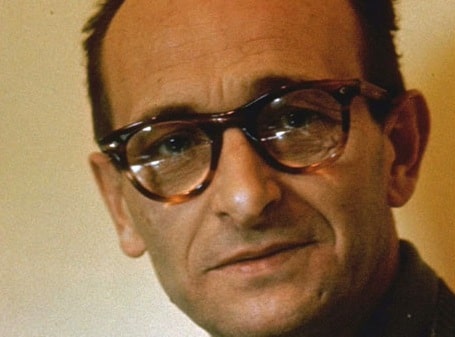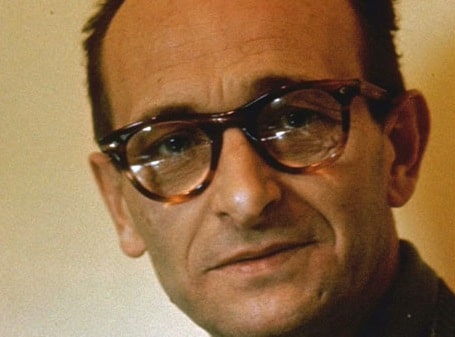Had it not been for an unguarded conversation between Adolf Eichmann’s son and the Argentinian girl he was dating, the chances are that the shabby “Ricardo Klement” would have lived out his days in obscurity a few miles north of Buenos Aires. Unlike Josef Mengele, the sadistic camp doctor at Auschwitz, who was feted in the more glamorous circles of Argentinian society, Klement was a failure in his adopted country. He ran a laundry business for a while but it went bankrupt. He lurched from job to job. And when he was captured by Mossad agents on 11 May 1960, shuffling home from the bus stop, they couldn’t quite believe that this was the high-ranking Nazi officer who was responsible for the deportation of millions of Jews to the death camps.
Since his trial in Jerusalem in 1961, Eichmann has become the subject of continued controversy – much of it not so much about the man himself, but often more about the very nature of evil. Yesterday’s release of a hand-written letter from Eichmann to the then Israeli president, Yitzhak Ben-Zvi, requesting clemency, will only continue the debate. “There is a need to draw a line between the leaders responsible and the people like me forced to serve as mere instruments in the hands of the leaders,” Eichmann’s letter pleaded. “I was not a responsible leader, and as such do not feel myself guilty.”
In other words: not my fault, I was only obeying orders. His self-delusion was unassailable, even at the end. Eichmann’s request was denied and two days later he was hanged in Ramla prison.
In her famous account of the trial, the philosopher Hannah Arendt described Eichmann as a small-minded functionary, more concerned with the managerial hows of his job than the moral or existential whys. According to Arendt, Eichmann wasn’t a man for asking difficult questions, he just got on with the job of managing timetables and calculating travel costs – thus her famous phrase “the banality of evil”.
Irrespective of the accuracy of Arendt’s disputed portrait, the importance of her account was that it expanded our moral grammar of evil. She persuaded many that moral evil did not need to have all the central-casting Gothic intensity of a horror movie. Evil could be ponderous and bureaucratic. It could be the work of a desk-bound pen-pusher whose emotional range didn’t extend much towards hate and who didn’t particularly care for the sight of blood. But this estimation didn’t fit with what a lot of people wanted to find. Which is why some felt that Arendt was letting Eichmann off the hook.
Fair use excerpt. Read the whole article here.



